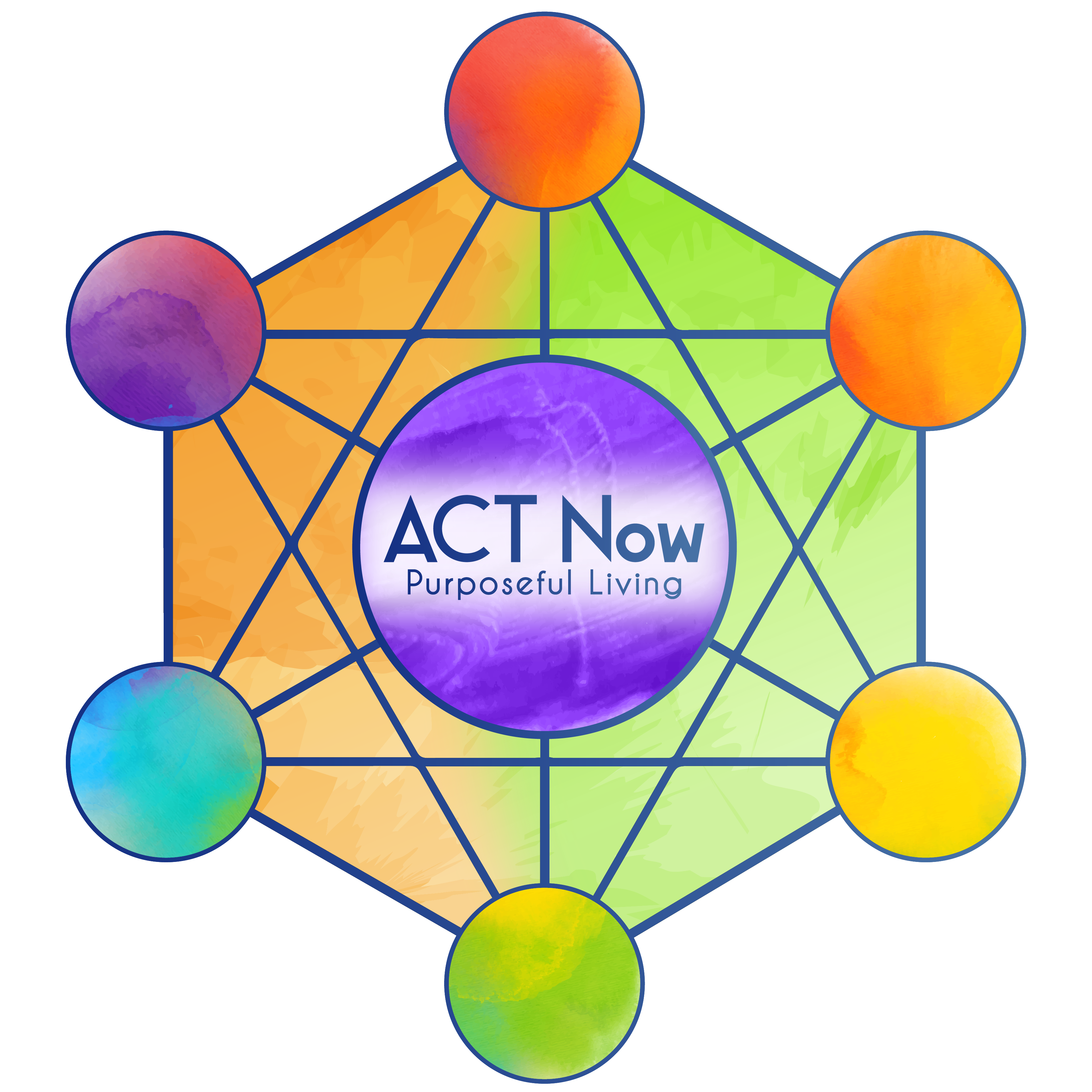What is ACT?
Developed by Dr Steven Hayes, Dr Kelly Wilson, and Dr Kirk Strosahl, ACT is a form of psychotherapy based on relational frame theory, a comprehensive theory of language and cognition that is framed as an offshoot of behaviour analysis.
Acceptance and Commitment Therapy
Developed in the late 1980s by Steven C. Hayes, Kelly G. Wilson, and Kirk Strosahl, Acceptance and Commitment Therapy (ACT) is an evidence-based therapeutic approach. ACT balances acceptance and mindfulness-based skills with commitment strategies aimed at helping us move towards what matters most while practicing acceptance of what is outside our control. Unlike traditional CBT (which focuses on changing or correcting one’s distorted or unrealistic thoughts), ACT aims to change our relationship with unwanted private experiences (thoughts, feelings, bodily reactions) so that they don’t have so much control over our actions. This difference in approach arises from the philosophy underlying ACT whereby it is not the content of our private experiences that causes psychological suffering, rather our avoidance or entanglement with those experiences. In fact, research shows that suppressing or eliminating unwelcome thoughts and feelings can result in a paradoxical effect, whereby the frequency and intensity of these experiences actually increase (Wenzlaff & Wegner, 2000).
From an ACT perspective, when we struggle with our uncomfortable private experiences, this can lead to psychological rigidity; an inflexible state that makes it difficult to take behavioural steps in accordance with our core values (Luoma et al., 2017). With this in mind, the central aim of ACT is to increase our psychological flexibility; that is the ability to connect more fully with the present moment, with awareness and openness, and to take action guided by our values (Harris, 2013).
Psychological flexibility is achieved through six processes:
- Cognitive defusion
- Acceptance
- Being present
- Self-as-context
- Values
- Committed action
ACT develops psychological flexibility in clients, through the development of mindfulness skills, guiding them towards acting in line with their core values to create a meaningful life. Another way of thinking about ACT is:
Accept, Choose, and Take action
Is ACT just traditional CBT?
ACT differs from traditional Cognitive Behavioural Therapy (CBT). While CBT tries to teach people to better control their thoughts, feelings, sensations, and other private events, ACT encourages “noticing”, “accepting”, and “embracing” these private events, especially previously unwanted ones.
Symptom reduction is not a goal of ACT. From an ACT perspective, our on-going attempts to get rid of ‘symptoms’ can create more problems for us. With ACT, the aim is to transform our relationship with our difficult thoughts and feelings, so that we no longer perceive them as ‘symptoms’. Instead, we learn to perceive them as harmless, even if uncomfortable, transient psychological events. Ironically, it is through this process that ACT actually achieves symptom reduction – but as a by-product and not the goal.
What is the goal of ACT?
The goal of ACT is to enable us to pursue a meaningful life that is guided by our values whilst also accepting the uncomfortable or unwanted thoughts and emotions that will inevitably show up as we engage in such valued actions.
ACT provides a toolkit of skills via experiential exercises and values-guided behavioural interventions that allow us to change our relationship to our private experiences and thus how we respond to them. Central to ACT is ‘mindfulness’, a transformative mental state of awareness, openness, and focus. Thanks to ACT, mindfulness skills are quick and easy to acquire. You can literally learn them in a few minutes, and they will rapidly and effectively help you to reduce the impact and influence of painful thoughts and feelings, break the grip of self-defeating habits, and engage fully in your life.
The secret to achieving inner peace lies in understanding our inner core values – those things in our lives that are most important to us – and then seeing that they are reflected in the daily events of our lives.
~ Hyrum W. SmithACT and Values
Having a sense of meaning in life isn’t about searching or trying to be something other than what we are. Searching takes enormous effort (and sometimes it pays off) but more often than not, it doesn’t and we are right back where we started. Or worse! It pulls us out of our lives. Searching for peace of mind can be like this. Most people want it, but few of us can find it and keep it around long enough to convince ourselves, let alone anyone else, that we’ve got it.
Maybe that’s the problem here. Maybe peace of mind isn’t something we have or find, but something we do, nurture and cultivate in ourselves. It is about living with ourselves, our histories, and going forward to create a life worthy of our time on this planet. That kind of peace is durable. It can’t be bought, lost, or stolen. It’s hard, yes. But it can be sweet too.
See here for further reading and the ACT evidence base
In short, research has supported the efficacy of ACT and Mindfulness for beneficially impacting:
Life satisfaction
Quality of life
Valued living
Coping skills
Psychological well-being
Long-term weight-loss
Post-traumatic stress disorder
Obsessive-compulsive disorder
Health and Immunity
Productivity and Concentration
Stress and Burnout
Job Satisfaction
Depression
Anxiety
Cancer Survivors
Chronic Pain
© ACT Now Purposeful Living
